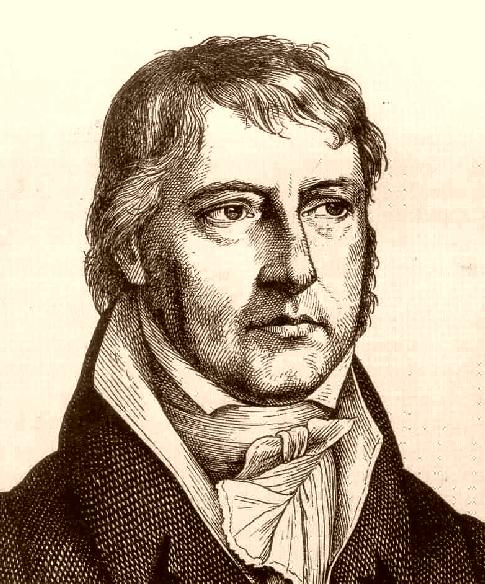To Where Our Oppositonal Culture Takes Us
Politics / US Politics Mar 23, 2012 - 01:26 AM GMT "On approaching the other it has lost its own self, since it finds itself as another being; secondly, it has thereby sublated that other, for this primitive consciousness does not regard the other as essentially real but sees its own self in the other." –Hegel
"On approaching the other it has lost its own self, since it finds itself as another being; secondly, it has thereby sublated that other, for this primitive consciousness does not regard the other as essentially real but sees its own self in the other." –Hegel
Morris Berman, in his book Why America Failed: The Roots of Imperial Decline, delves into a very sensitive topic for most Americans. He asks the tough questions about the nature of American culture as it relates to various issues such as slavery, genocide, the corruption of corporate and governing institutions, systemic environmental destruction, imperial warmongering and economic decline. The book focuses not only on some limited time period in recent history, but the course of the new frontier's entire lifetime from colonial settlements to present day.

Some may argue that a straightforward application of Hegel's concept of "negative identity" to American culture is rather simplistic, but I believe Berman provides valuable insights by making such a connection. When he argues that American history has been significantly influenced by our culture's need to define itself in opposition to abstract "others", who are typically viewed as savages, it is difficult to deny the historical evidence that lends its support. It is a history marked by "wars" of all different forms, but with very similar underlying narratives.
It begins with the European colonization of the Americas, and the battle against Native populations for the resources/wealth offered by the new frontier. What our public schools like to present as a cordial day of giving thanks followed by various isolated incidents of confrontation is more accurately summed up as the systematic pillaging, subjugation and genocide of indigenous populations. That was perhaps the most significant factor in shaping our future negative identity as the so-called civilized and liberating force in opposition to savage cultures.
That dynamic, which started with colonial settlers from Europe, maintained itself right through the war for freedom from our "colonial oppressors" in England. A naturally under-emphasized feature of periods before, during and after the Revolutionary War was the extensive harm inflicted on people labeled as "loyalists" or "tories", who comprised about 20-30% of the colonial population. They were constantly harassed, tarred and feathered, beaten and sometimes killed. Many of these "loyalists" included blacks who were promised freedom by both the British and rebel armies, but received it from neither.
About 60 years later, the Americans waged a war against the savage Mexicans populations to the south, who refused to willingly relinquish half their country to us following the forced annexation of Texas. Shortly after, the U.S. Civil War broke out, which Berman describes as a clash of oppositional cultures – on one side was the "slow, easy south" and on the other was the relentlessly expanding north. What resulted from this internal schism was the bloodiest war in American history, and all of that blood was shed without the enslaved African-Americans gaining any real freedom in the process.
The list of cultures which informed the negative identity of Americans obviously keeps growing larger from there. In WWI and WWII, it was the ruthless, war-mongering Germans. After that, it was the brutal Soviets and other Communist nations during the Cold War. Most recently, it has become the Muslim populations and the "insurgent" groups of the Arab world that are villified by the "war on terror". Regardless of what we think about any of those populations and cultures, it is undeniable that much of American society has developed an identity which requires a constant need to define ourselves in opposition to a hostile "other". As Berman says, "all forms of violence are quests for identity".

Berman presents a very compelling argument and eventually concludes that the historical trends of American culture are bound to continue on for many years into the future until, presumably, our policies lead us straight into a global catastrophe such as wholesale economic and sociopolitical collapse, nuclear war or apocalyptic climate change. He views our destructive mentality as something nearly engrained in our DNA, and tells us that Americans simply "don't have the gray matter" to make any significant changes to their collective mentality in time. It is all a very grim picture, indeed.
On the other hand, he states that the original working title for his book was "Capitalism and Its Discontents", because he wanted to recognize the strains of resistance that have also been present in America. He didn't go with that title because he correctly recognized that those "discontented" strains have never achieved a very significant voice in America, and certainly not one that has been able to reach the masses and make a difference. As much as we would like to believe that we can evolve away from our opposition culture into one that is more comfortable with itself, it is difficult to ignore the momentum of our self-repeating history over a few centuries.
As the American empire comes under increasingly large pressure from economic, financial and environmental limits, how will our negative identity react? On the one hand, we have a federal government and a system of large corporations that are seeking to oppress and enslave a majority of Americans with every chance they get. We see parts of our potential negative identity reacting towards these elite groups through movements such as Occupy, but they still remain a rather ephemeral force. The more forceful divide has, unfortunately, become an internal one between "conservatives" and "liberals"; democrats and republicans.
The next few months before the 2012 elections will perhaps give us a glimpse into which faction of our oppositional identity will take precedence over the others going into the future. Like Berman, I am not very hopeful that Americans will suddenly begin directing their anger, fear and frustration into constructive channels. Rather, it seems likely that they will once again fall into the self-defeating trap of the negative identity that has formed around them since their ancestors first arrived at the shores of North America. One that reacts to the conveniently commercialized, branded and propagandized threats of the ephemeral "other". We can only hope the empire crumbles faster than the American culture metastacizes yet again.
Ashvin Pandurangi, third year law student at George Mason University
Website: http://theautomaticearth.blogspot.com (provides unique analysis of economics, finance, politics and social dynamics in the context of Complexity Theory)
© 2012 Copyright Ashvin Pandurangi to - All Rights Reserved Disclaimer: The above is a matter of opinion provided for general information purposes only and is not intended as investment advice. Information and analysis above are derived from sources and utilising methods believed to be reliable, but we cannot accept responsibility for any losses you may incur as a result of this analysis. Individuals should consult with their personal financial advisors.
© 2005-2022 http://www.MarketOracle.co.uk - The Market Oracle is a FREE Daily Financial Markets Analysis & Forecasting online publication.



